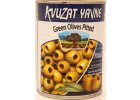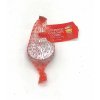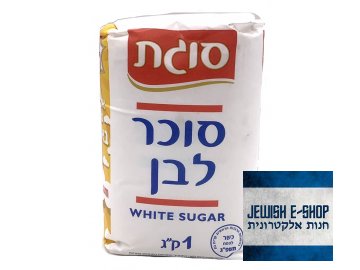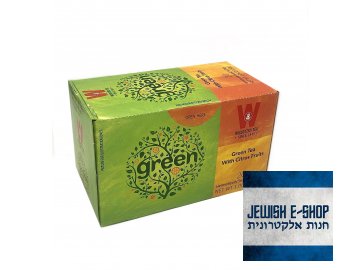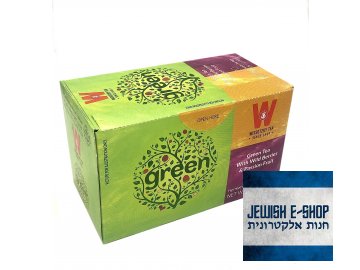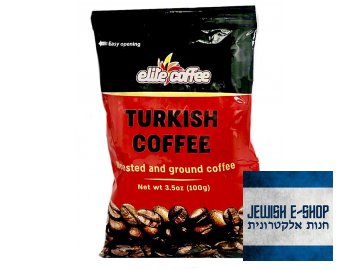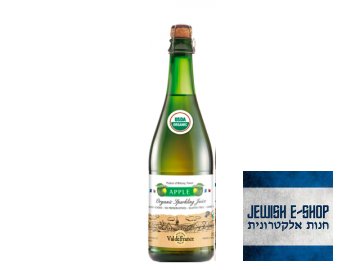Kosher food
Bestsellers
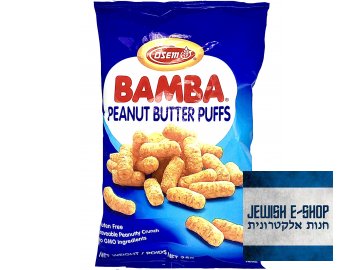
Children LOVE these peanut puffs! And they know why, because they are tasty, 100% kosher, 100% Israeli and made of 100% natural sources. 25 g. Made in Israel.
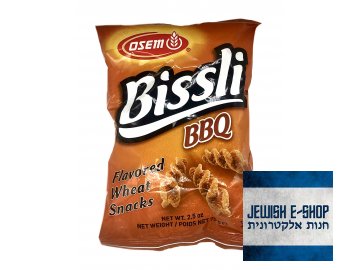
Barbecue season is over, grill burnt out, but you still have that taste on your tongue? In that case, Kosher snacks Bissli BBQ are the best choice for you! 100% Kosher, 100%...
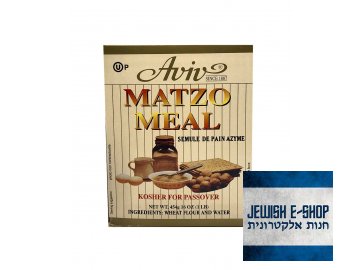
Matzo meal kosher for Passover - Matzo Meal Matzos - 454 grams 100% KOSHER for Passover - 454 g Ingredients: Flour, Water. Best before: January 2024

Children LOVE these peanut puffs! And they know why, because they are tasty, 100% kosher, 100% Israeli and made of 100% natural sources. 25 g. Made in Israel.

Children LOVE these peanut puffs! And they know why, because they are tasty, 100% kosher, 100% Israeli and made of 100% natural sources. 100 g. Made in Israel.
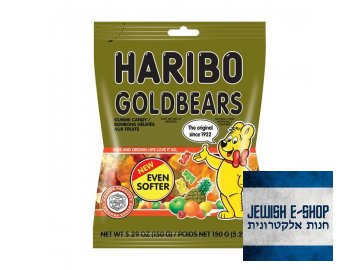
100% Kosher fruit candies Gold Bear. 150g, Made in Austria, Kosher product.
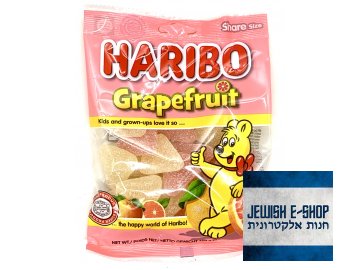
100% Kosher grapefruit candies Haribo Grapefruit. 150g, Made in Austria, Kosher product.
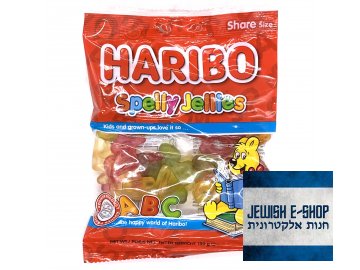
100% Kosher fruit candies Haribo Spelly Jellies. 150g, Made in Austria, Kosher product.

100% Kosher fruit candies Wummis. 150g, Made in Austria, Kosher product.
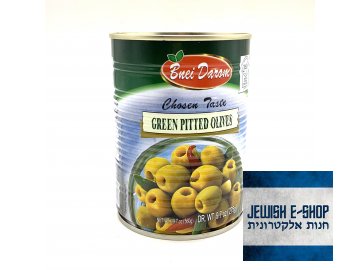
Excellent kosher green olives without seeds from Israel, 100% kosher, Israeli product, large advantageous packaging - brutto 540gr, netto 275gr.

Kosher pickled eggplant, delicious taste, convenient packaging. Gross 540gr, net 320gr. Made in Israel!

Pri-Chen red Harissa 570g KOSHER le PESACH, PARVE Ingredients: Sweet red pepper, salt, acetic acid, spices. Best before: 25. 11. 2024

Kosher cucumbers from Israel size 7-9, delicious taste, convenient packaging. Gross 670 gr, net 348 gr. Made in Israel! Kosher Parve, Kosher for Passover and the rest of the year.

Kosher cucumbers from Israel size 7-9, delicious taste, convenient packaging. Gross 670 gr, net 348 gr. Made in Israel! Kosher Parve, Kosher for Passover and the rest of the year.
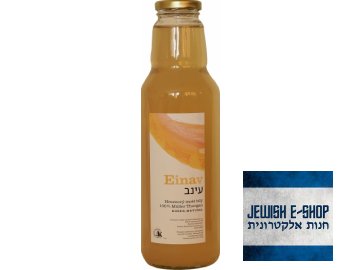
Excellent non-alcoholic white grape must, 100% kosher Müller Thurgau variety

Kosher parve for Passover and the rest of the year 20 infusion bags Ingredients: Chinese green tea, apple flavor, cinnamon, cinnamon flavor, roasted chicory root, hibiscus,...
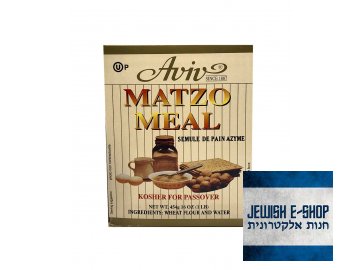
Best before date: January 2025 Matzo meal kosher for Passover - Matzo Meal Matzos - 454 grams 100% KOSHER for Passover - 454 g Ingredients: flour, water.
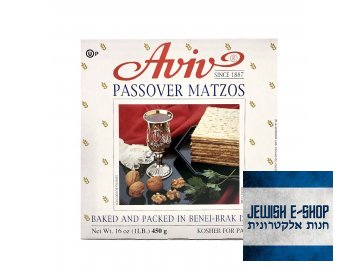
AVIV PASSOVER MATZOS - MATZOS AVIV since 1887, baked and packed in Benei-Brak Israel 100% KOSHER for Passover - 450 g Ingredients: Wheat Flour (gluten), Water. Best...

The perfect taste of premium Dutch Edam, KOSHER for Passover. Semi-soft cheese, buttery and soft cheese with a hint of pepper. 150 grams. Best before: May 10, 2023

The perfect taste of premium Dutch Gouda, KOSHER on Passover. Mild and slightly nutty taste. 150 grams. Best before: September 13, 2023
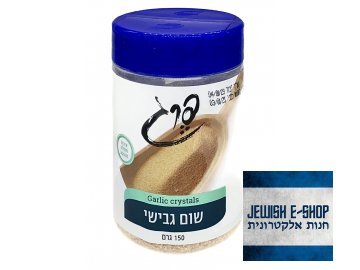
A universal seasoning in almost every kitchen in the world! 150 grams Minimum shelf life until: January 3, 2025 Typical taste, distinct aroma. Granulated garlic is perfect for...

A powerful aphrodisiac with a sweet taste and aroma reminiscent of orange peel. Made in Israel. 120 grams Minimum shelf life until: September 20, 2023 Ground coriander is most...
The word kosher (כשר, Kasher) refers to food and bevarages that are in accordance with kashrut (כשרות), the set of Jewish dietary laws. Kosher, in a broader sense, refers to anything that is ritually eligible, in accordance with the rules and that is right, proper and acceptable. This word became a colloquialism in many languages, including Czech and English. In Czech, there is an obsolete word kosher, which was the name for a Jewish butcher, who is commonly known as a shochet. It is necessary to realize that meals that come from Jewish cuisine are not kosher, unless they are prepared in accordance with Jewish dietary laws.
The Torah describes what is kosher in its Books of Wayiqra (Leviticus) and Devarim (Deuteronomy). There is no rational explanation of kashrut (chukim), which means that the reason is the need to 'listen to G-d and emulate His holiness.' There are two frequently mentioned supporting arguments which, however, are not the explanation of kashrut. These include health reasons and educational reasons. While the first one says that kashrut is a prevention of disease and parasites, the latter one says that kashrut is a constant reminder of Judaism and Jewish education for children.
The Torah lists the permitted and forbidden animals. In regard to mammals, the Torah permits to eat cloven-footed and rumirant animals. These include cattle, goats, sheep, big game (e.g. deers, bisons etc.). Forbidden mammals include pigs, rabbits, hares, horses etc. In regards to birds, the Torah explicitly forbids some species, like bird of prey and scavengers. Permitted birds include poultry (chickens, ducks, geese, turkey, quails, pheasants and pigeons). Milk and eggs can be consumed only from animals that are kosher themselves. It is possible to eat any fish that has fins and scales (the scales must be ctenoid or cycloid). Carnivorous fishes, eels, sharks, stingrays, sturgeons (including caviar) and seafood are forbidden. It is also forbidden to eat reptiles, amphibians and insects (excluding some locusts). It is expressly forbidden to eat dead animals and carrions (nevela) and sick and torn animals (treyf).
One of the principles of kashrut is a strict prohibition of mixing meat food (besar) and dairy food (chalav), which is based on the verse 'Thou shalt not boil a kid in his mother's milk.' This means that it is forbidden both to cook such food together and eat it as well. Religious families separate dishes and utensils for a meat and dairy food. It is also forbidden to benefit from a sale of such mixed food. There is a specific period that one has to wait between eating dairy and eating meat and vice versa. These periods vary throughout Jewish communities. One waits shorter period when eats dairy at first and then meat (not for hard cheeses). It is usually about half an hour or one can eats a parve (Parve is a dish that is neither meat nor dairy. This include fruits, vegetables, grains, eggs, fishes, pasta, etc.) and rinse his/her mouth. In reverse order, i.e. when one eats first meat and then dairy, he/she has to wait from one to six hours, according to particular Jewish community.
A consumption of blood is strictly forbidden. This prohibition is based on the verse 'Whosoever eateth it [blood] shall be cut off', which is explained by another verse 'the life of all flesh is the blood thereof.' Animals undergo shechita (a special method of slaughter), which drains blood out of their body. The remaining blood is removed by melicha. This prohibition does not apply to fishes.
Jewish community in Prague publishes an annual guide of kosher food, which sets out a list of appropriate shops, products, food, beverages, and forbidden non-kosher additives.
Meat of kosher animal is not kosher automatically. An animal must undergo a special type of slaughter (shechita), which is carried out by a trained Jewish butcher (shochet). One of the main principles of shechita is to spare animal from suffering during slaughter and to drain all its blood from the body. A shochet cuts animal's throat with a special sharp knife (chalaf). This insection severs a jugular vein and artery, larynx and esophagus and cause an immediate drop in blood pressure in the brain, which results in cessation of consciousness. Animal thus feels no pain. There are five Halachic requirements, mentioned in Shulchan Aruch (Yore De'ah 23), which Shochet must follow.
Residual blood from the meat is removed thanks to a special set of procedures. At first, the meat is immersed into a cold water for about half an hour, resulting in pore opening. Then is laid on an inclined board and sprinkled with coarse salt (melicha), which through the principle of osmosis removes blood from the meat. Meat should be washed after this procedure. This technique can not be used for all types of meat. These include inner organs like liver, heart od lungs. Liver can be prepared by salting and grilling over an open fire (kashering). It is also necessary to remove the tendons and the venous system. After slaughter, the animal is properly controlled, and if there was a single defect, illness, etc. the animal would automatically cease to be kosher.
If a restaurant wants to be kosher, it must have separate dishes and utensils for a meat and dairy food. It is not possible to wash these two types of dishes together (e.g. in a dishwasher or sink). However, it is not forbidden to store these two types of food in a refrigerator, in case they have their permanent place. It must use only kosher food, follows kashrut and has kosher certification.
Kosher products are marked by kosher certification. It is a special symbol, known as hechsher (הכשר), which informs consumers that the product was produced and processed under rabbinical supervision, and that meets the requirements of kashrut. Jewish community in Prague is the only authorized publisher of hechsher in the Czech Republic. The largest kosher certification authority in the United States are the Orthodox Union, the OK Kosher Certification, and KOF-K. Hecsher may be supplemented by a letter indicating the nature of the product (D = dairy, M = meat, P = Passover and pareve for parve products). When a company is seeking kosher certification, it contacts mashgiah (משגיח), who visits and checks up the process and methods of productions, the factory itself and the recipe. Then he or she decides on granting kosher certification.




